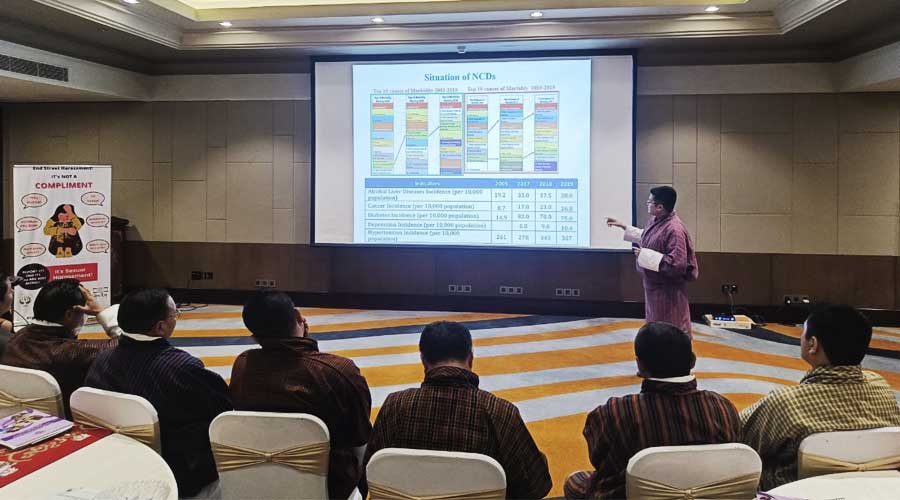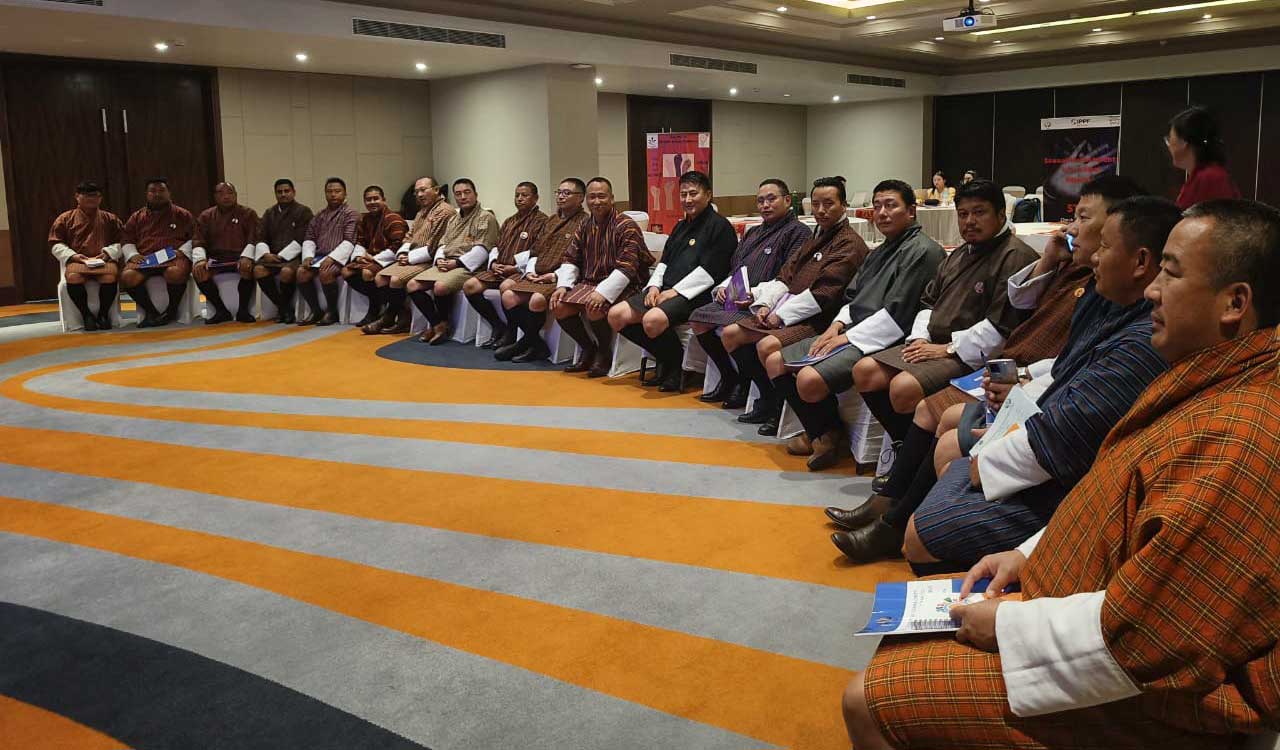
Non-communicable diseases continue to pose a growing burden on the healthcare system in the country. This is mainly due to unhealthy lifestyles and dietary habits which the public especially in rural areas are not aware of. The health ministry is now engaging the local leaders to educate the rural communities on public health.
It will be for the first time that the local leaders will be conducting awareness programmes to prevent non-communicable diseases annually. The chairpersons in coordination with gups and other local leaders will advocate for preventing diseases such as cancers, high blood pressure, diabetes, and jaundice.
The gewogs will allocate a separate budget for the programme. The chairpersons committed this during a meeting in Thimphu which ended yesterday.
The Health Ministry expects that the programme will encourage more people to know about preventable diseases, start healthy lifestyles, and come forward for general health check-ups regularly.
“As we go back, we will inform the gups and other local leaders who will then sensitise the villagers and find out people’s needs, problems, hopes, and expectations. And while doing that Gups, Mangmi, and the respective local leaders will have a meeting and decide on the budget allocation. We are going to work on plans and think of solutions for the unseen problems which may occur in the future,” said Cheku, Chairperson of Trashi Yangtse Dzongkhag Tshogdu.
 The local leaders will also create awareness of social issues as part of the programme.
The local leaders will also create awareness of social issues as part of the programme.
“In the past, it was quite difficult to give adequate health services. Now, with His Majesty’s support and various programmes conducted by the Health Ministry, it has become easier. For instance, the consumption of alcohol leads to social problems. We are going to advocate that and try to reduce the problem. Also, we will advise and advocate on teenage pregnancy and domestic violence, so these are the issues which we can work on,” said Jamphel, Chairperson of Bumthang Dzongkhag Tshogdu.
As per the non-communicable disease survey conducted in 2019, NCD remains a public health concern.
According to the annual health bulletin 2022, hypertension and diabetes have increased by around 3,000 cases compared to the previous year.
Kelzang Choden
Edited by Tshering Zam







